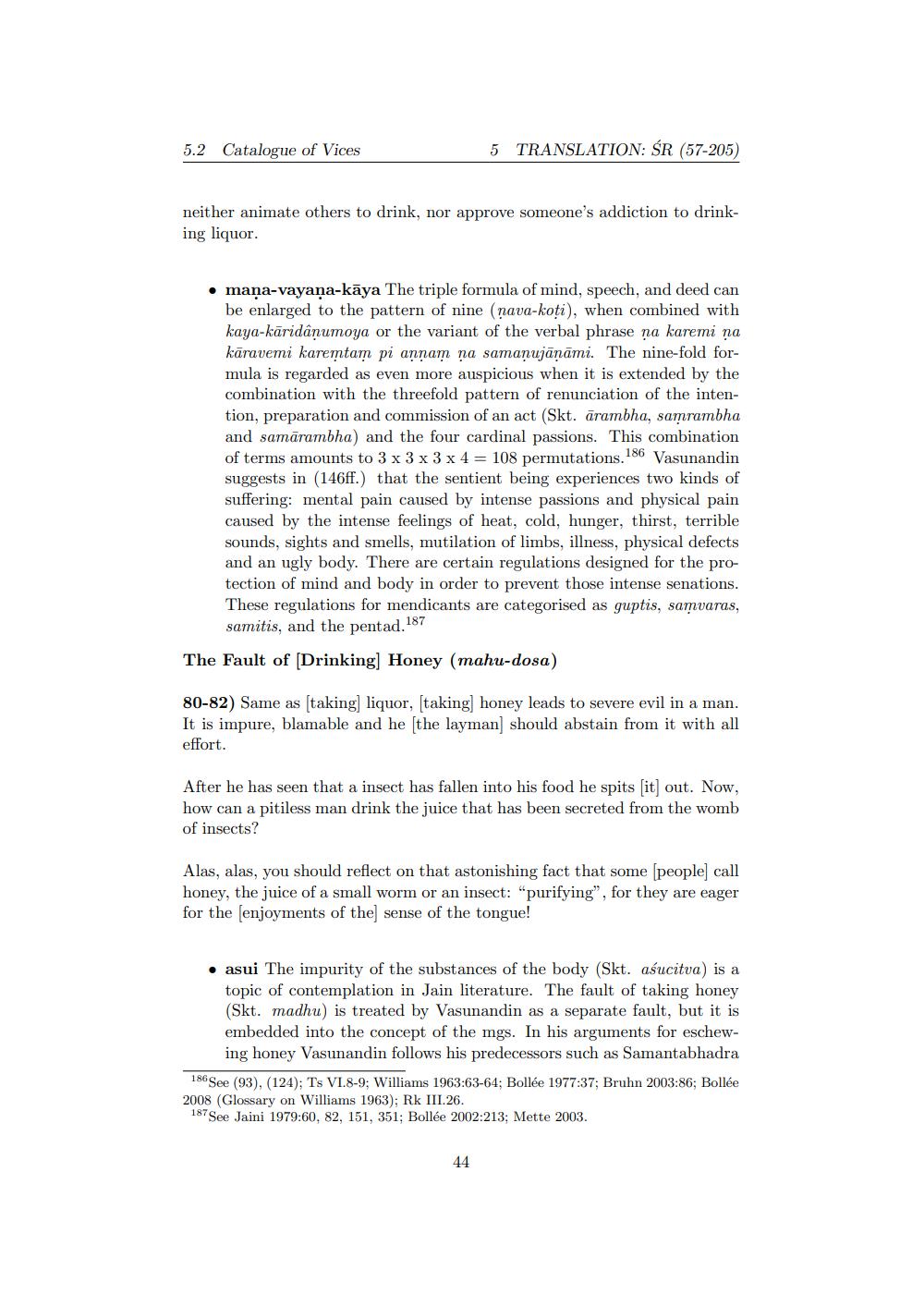________________
5.2 Catalogue of Vices
5 TRANSLATION: ŚR (57-205)
neither animate others to drink, nor approve someone's addiction to drinking liquor.
186
maṇa-vayaṇa-kaya The triple formula of mind, speech, and deed can be enlarged to the pattern of nine (nava-koți), when combined with kaya-kāridanumoya or the variant of the verbal phrase na karemi na kāravemi karemtam pi annam na samanujāṇāmi. The nine-fold formula is regarded as even more auspicious when it is extended by the combination with the threefold pattern of renunciation of the intention, preparation and commission of an act (Skt. arambha, samrambha and samārambha) and the four cardinal passions. This combination of terms amounts to 3 x 3 x 3 x 4 = 108 permutations." Vasunandin suggests in (146ff.) that the sentient being experiences two kinds of suffering: mental pain caused by intense passions and physical pain caused by the intense feelings of heat, cold, hunger, thirst, terrible sounds, sights and smells, mutilation of limbs, illness, physical defects and an ugly body. There are certain regulations designed for the protection of mind and body in order to prevent those intense senations. These regulations for mendicants are categorised as guptis, samvaras, samitis, and the pentad. 187
The Fault of [Drinking] Honey (mahu-dosa)
80-82) Same as [taking] liquor, [taking] honey leads to severe evil in a man. It is impure, blamable and he [the layman] should abstain from it with all effort.
After he has seen that a insect has fallen into his food he spits [it] out. Now, how can a pitiless man drink the juice that has been secreted from the womb of insects?
Alas, alas, you should reflect on that astonishing fact that some [people] call honey, the juice of a small worm or an insect: "purifying", for they are eager for the [enjoyments of the] sense of the tongue!
⚫ asui The impurity of the substances of the body (Skt. aśucitva) is a topic of contemplation in Jain literature. The fault of taking honey (Skt. madhu) is treated by Vasunandin as a separate fault, but it is embedded into the concept of the mgs. In his arguments for eschewing honey Vasunandin follows his predecessors such as Samantabhadra
186 See (93), (124); Ts VI.8-9; Williams 1963:63-64; Bollée 1977:37; Bruhn 2003:86; Bollée 2008 (Glossary on Williams 1963); Rk III.26.
187 See Jaini 1979:60, 82, 151, 351; Bollée 2002:213; Mette 2003.
44




